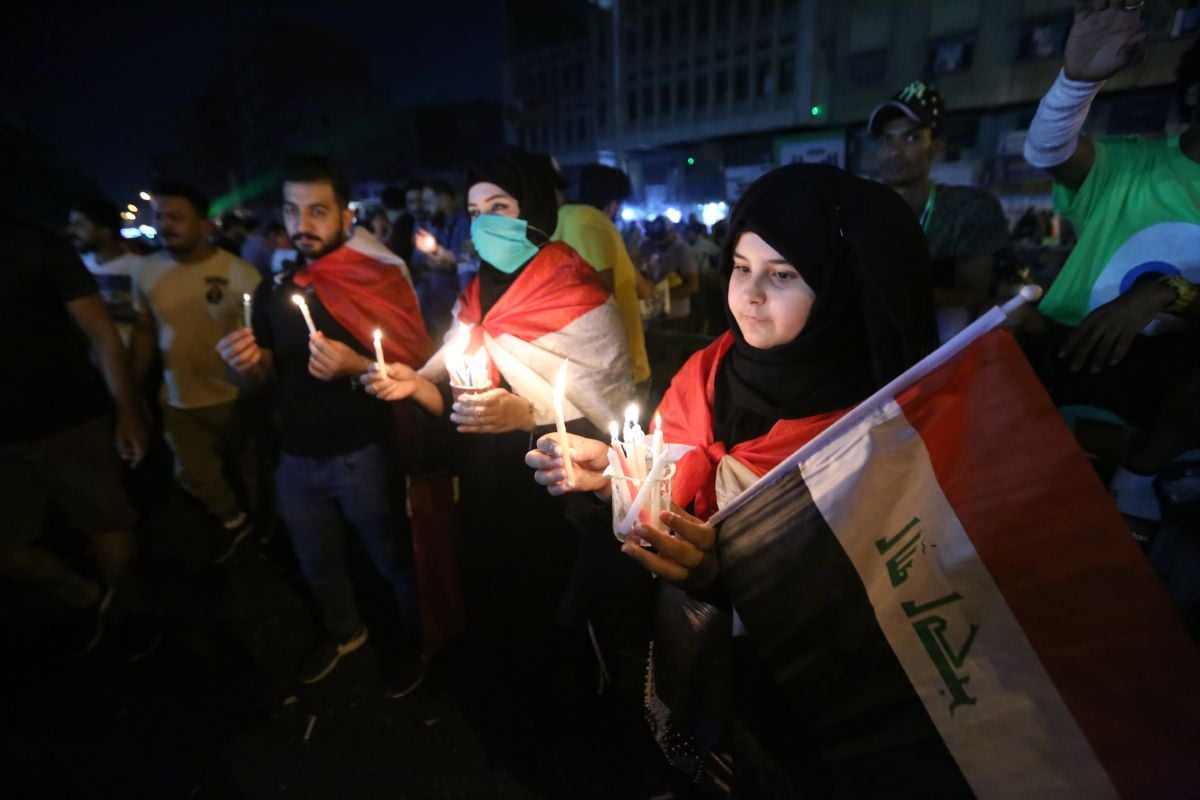Dubai’s Al-Akhbar al-An reports that further large demonstrations broke out in Iraq on Saturday, leaving 91 wounded and one dead.
Friday saw some of the largest demonstrations in modern Iraqi history. Protesters are demanding an end to corruption and sectarianism and want a government that can deliver basic services. They are also objecting to U.S. troops being in the country, as well as Iranian influence.
Since the beginning of October when mass protests began, 260 have been killed. Iraqi security forces have used military-grade teargas, which can wreak havoc on civilians, and have used live fire on demonstrators.
Iraq’s only Gulf port is Umm Qasr, a key economic artery. Crowds have gathered to blockade roads coming out of it north. This development has deeply alarmed the Iraqi government, which has called on the public to demonstrate in designated zones and avoid damaging the economy.
Prime Minister Adel Abdel Mahdi has offered to resign in the face of the huge and continuing protests.
One of the demands of the crowd is a new election law to address the ongoing gridlock typically produced by Iraqi parliamentary elections and their dominance by a handful of parties.
Some of those parties are Iran-backed, and Iranian intelligence officials have attempted to intervene against the protests. This step angered the street crowds. On Friday, Shiite Grand Ayatollah Ali Sistani gave a ruling that foreign nations should not interfere in Iraqi politics, which has widely been seen as aimed at Iran. Sistani is of Iranian extraction.
The current Iraqi constitution and procedures are legacies of the 8.5-year American military occupation of Iraq, and many of its articles were originally written by Bush administration officials. Since 2005 Iraqi politics have been dominated by a handful of major parties, many of them with a fundamentalist Shiite or other religious and ethnic coloration. The Occupation set a tone of sectarian representation, which the crowds are also protesting, demanding an upright technocratic cabinet instead.
Al Jazeera reports that labor unions have played a central role in the rallies.
Bush’s viceroy in Iraq attempted to dissolve the country’s guilds and labor unions, in accordance with the plutocratic and austerity-driven policies of the 21st century United States. Many unions with membership in the Arab League insisted that the Americans had no right to take this step.
Parliament has offered to table a new electoral law, but it is having difficulty obtaining a quorum. This is typical of the gridlock about which the crowds are complaining.
Join us in defending the truth before it’s too late
The future of independent journalism is uncertain, and the consequences of losing it are too grave to ignore. To ensure Truthout remains safe, strong, and free, we need to raise $43,000 in the next 6 days. Every dollar raised goes directly toward the costs of producing news you can trust.
Please give what you can — because by supporting us with a tax-deductible donation, you’re not just preserving a source of news, you’re helping to safeguard what’s left of our democracy.
